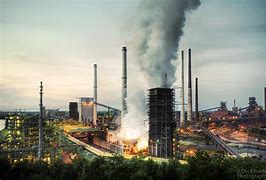-
European heavy industry redoubles calls for carbon border tax as rising carbon permit prices savage competitiveness
Date posted:
-
-
-
Post Author
Patrick LaveryCombustion Industry News Editor
-

Producers in carbon-intensive industries in the European Union (EU) are increasing their calls for a rapid imposition of a carbon border tax, as the Financial Times reports. Rising carbon permit prices under the EU Emissions Trading System (ETS) mean that costs for European producers are increasing at a faster rate than for their non-European competitors, a situation which is understandably concerning for those producers. Prices have recently reached €50/tonne (US$60/tonne) for a permit, more than double pre-pandemic levels, and that they might result in less production in Europe and probably more polluting production outside of Europe would be a perverse outcome of the ETS. A carbon tax on products imported into the EU is the envisaged way to combat the imbalance between producers, though it is resisted by the EU’s trading partners and presents logistical problems, amongst them having to calculate the carbon emissions for products coming into the EU. It is also only a partial solution, levelling the playing field within the EU but keeping European producers at a disadvantage when attempting to export.
Another effect of the higher carbon price is that it is reducing some producers’ ability to spend on decarbonisation efforts. As Axel Eggert, director-general of the European Steel Association told the FT, “it makes it much more difficult to invest in new technologies”, simply because the money is being spent on permits. One part of the rising price for permits has been the anticipation that the supply of them would be cut, and so there are also calls for a slower-than-currently-planned re-allocation of permits away from heavy industry. With the implementation of a carbon border tax not expected until at least 2023, the next few years will be worrisome ones for European heavy industry. Perhaps one glimmer of hope would be in other countries agreeing to impose a price on carbon of their own, which, with the setting of more and more ambitious carbon targets across the world, may be a possibility, though national interests are sure to nip at the heels of such agreements.
